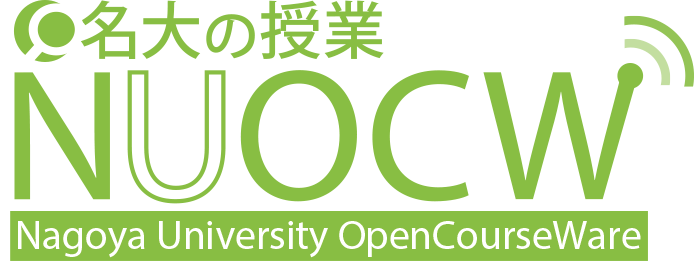Introduction to Electromagnetism I
| Lecturer | Hiroshi AMANO, Professor |
|---|---|
| Department | Institute of Liberal Arts & Sciences, 2010 Fall |
| Recommended for: | Department of Civil Engineering and Architecture, School of Engineering (2・1.5 hours / session One session / week 15 weeks / semester) |
Key Features
In this class, the mechanisms of electromagnetic phenomena in our lives, such as forecasting earthquakes, thunder, electric vehicles, etc., will be introduced and discussed. You may need to understand several laws of electromagnetism such as Coulomb's law, Gauss' law, Ampere's law, etc. The historical background of how each law was developed will be shown and an explanation given of how to easily understand them. The students will deepen their understanding by doing exercises related to each law taught in the class.
Course Aims
The objective of this class is, firstly, to understand how pioneers developed electromagnetics, and secondly to learn how to analyze electromagnetic fields based on mathematics; and thirdly to apply this knowledge to other issues related to electromagnetics.
In this class, you will learn about electric fields around a static charge in any shape, and magnetic fields around a static current.
The goal of this class is as follows:
- You will be able to understand the physical meaning of electric fields and magnetic fields.
- You will be able to understand many laws of physics and analyze static electric fields and magnetic fields by yourself.
Course Requirements
This is a compulsory subject.
Course Schedule
| Session | Contents |
|---|---|
| 1 | History of the development of electromagnetism, Electromagnetic phenomena in our lives |
| 2 | Essential mathematics for understanding electromagnetism 1: Differentials and Integrals |
| 3 | Essential mathematics for understanding electromagnetism 2: Vector analysis |
| 4 | Coulomb's law |
| 5 | Electric field and electric flux, Gauss' law |
| 6 | Electrical potential, Electrostatic potential energy |
| 7 | Electric dipole, Electric field and electrical potential around the electric dipole |
| 8 | Electrical conductor, Metal, Electric shield, Earth and ground |
| 9 | Capacitor (Condenser) |
| 10 | Dielectrics, Electrostatic potential energy in capacitor |
| 11 | Definition of Ampere, Electric circuit and current, Kirchhoff's law |
| 12 | Lorentz force, Magnetism, Magnetic field and magnetic flux |
| 13 | Ampere's law, Bio-Savart law |
| 14 | Stokes' Theorem |
| 15 | Summary / Final exam |
Lecture Notes
Note: All files are in Japanese.
Session #1
Session #2
Session #3
Session #4
Session #5
Session #6
Session #7
Session #8
Session #9
Session #10
Session #11
Session #12
Session #13
Session #14
Check Test
Note: All files are in Japanese.
Grading
Grading will be 80% examination exercise, and the other 20% based on two reports.
Last updated
March 17, 2020
